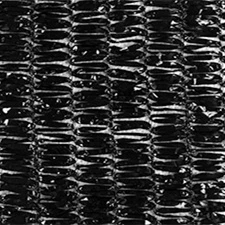-
 Afrikaans
Afrikaans -
 Albanian
Albanian -
 Amharic
Amharic -
 Arabic
Arabic -
 Armenian
Armenian -
 Azerbaijani
Azerbaijani -
 Basque
Basque -
 Belarusian
Belarusian -
 Bengali
Bengali -
 Bosnian
Bosnian -
 Bulgarian
Bulgarian -
 Catalan
Catalan -
 Cebuano
Cebuano -
 China
China -
 Corsican
Corsican -
 Croatian
Croatian -
 Czech
Czech -
 Danish
Danish -
 Dutch
Dutch -
 English
English -
 Esperanto
Esperanto -
 Estonian
Estonian -
 Finnish
Finnish -
 French
French -
 Frisian
Frisian -
 Galician
Galician -
 Georgian
Georgian -
 German
German -
 Greek
Greek -
 Gujarati
Gujarati -
 Haitian Creole
Haitian Creole -
 hausa
hausa -
 hawaiian
hawaiian -
 Hebrew
Hebrew -
 Hindi
Hindi -
 Miao
Miao -
 Hungarian
Hungarian -
 Icelandic
Icelandic -
 igbo
igbo -
 Indonesian
Indonesian -
 irish
irish -
 Italian
Italian -
 Japanese
Japanese -
 Javanese
Javanese -
 Kannada
Kannada -
 kazakh
kazakh -
 Khmer
Khmer -
 Rwandese
Rwandese -
 Korean
Korean -
 Kurdish
Kurdish -
 Kyrgyz
Kyrgyz -
 Lao
Lao -
 Latin
Latin -
 Latvian
Latvian -
 Lithuanian
Lithuanian -
 Luxembourgish
Luxembourgish -
 Macedonian
Macedonian -
 Malgashi
Malgashi -
 Malay
Malay -
 Malayalam
Malayalam -
 Maltese
Maltese -
 Maori
Maori -
 Marathi
Marathi -
 Mongolian
Mongolian -
 Myanmar
Myanmar -
 Nepali
Nepali -
 Norwegian
Norwegian -
 Norwegian
Norwegian -
 Occitan
Occitan -
 Pashto
Pashto -
 Persian
Persian -
 Polish
Polish -
 Portuguese
Portuguese -
 Punjabi
Punjabi -
 Romanian
Romanian -
 Russian
Russian -
 Samoan
Samoan -
 Scottish Gaelic
Scottish Gaelic -
 Serbian
Serbian -
 Sesotho
Sesotho -
 Shona
Shona -
 Sindhi
Sindhi -
 Sinhala
Sinhala -
 Slovak
Slovak -
 Slovenian
Slovenian -
 Somali
Somali -
 Spanish
Spanish -
 Sundanese
Sundanese -
 Swahili
Swahili -
 Swedish
Swedish -
 Tagalog
Tagalog -
 Tajik
Tajik -
 Tamil
Tamil -
 Tatar
Tatar -
 Telugu
Telugu -
 Thai
Thai -
 Turkish
Turkish -
 Turkmen
Turkmen -
 Ukrainian
Ukrainian -
 Urdu
Urdu -
 Uighur
Uighur -
 Uzbek
Uzbek -
 Vietnamese
Vietnamese -
 Welsh
Welsh -
 Bantu
Bantu -
 Yiddish
Yiddish -
 Yoruba
Yoruba -
 Zulu
Zulu
Effective Insect Barrier Nets for Sustainable Agricultural Practices and Crop Protection
The Importance of Anti-Insect Nets in Agriculture
Agriculture plays a crucial role in feeding the global population, but it is not without its challenges. One of the most significant threats to crop yields is pest infestation. Insects can wreak havoc on plants, leading to reduced harvests and increased costs for farmers. To combat these issues, innovative solutions have emerged, including the use of anti-insect nets. These nets are an effective and environmentally friendly method for protecting crops from harmful insects, ensuring higher yields and better-quality produce.
The Importance of Anti-Insect Nets in Agriculture
One of the main benefits of using anti-insect nets is the reduction of pesticide reliance. Farmers often resort to chemical treatments to control insect populations, which can lead to pesticide resistance and other environmental issues. By employing anti-insect nets, farmers can significantly minimize their dependency on chemical applications, thus promoting a more sustainable agricultural practice. This shift not only protects beneficial insects but also contributes to the overall health of the ecosystem.
anti insect net for agriculture

Additionally, anti-insect nets help in protecting crops from other environmental stressors. For example, these nets can shield plants from strong winds, heavy rainfall, and hail, which can damage crops and hinder growth. Furthermore, they help maintain optimal temperature and humidity levels around the plants, creating a microclimate that is conducive to growth. This advantage can be especially significant in regions where weather conditions fluctuate dramatically, posing potential risks to crops.
In terms of economic benefits, the implementation of anti-insect nets can lead to increased crop yields and reduced losses. Healthy crops free from pests can result in higher quality produce, allowing farmers to sell their products at premium prices. Additionally, by decreasing the need for chemical inputs, farmers can save on costs associated with pest control. In the long run, the investment in anti-insect nets can yield substantial returns, making them a cost-effective solution for many agricultural producers.
Despite their numerous advantages, it is important for farmers to consider proper installation and maintenance of anti-insect nets. Effective use entails adequately securing the edges of the nets to prevent pest entry and ensuring that the nets are free of tears and holes. Proper maintenance also involves periodic inspections and cleaning to maximize durability.
In conclusion, anti-insect nets represent an innovative and efficient approach to pest management in agriculture. By providing a barrier against harmful insects while fostering a sustainable agricultural environment, these nets not only protect crops but also promote the overall health of the ecosystem. As the agricultural sector continues to face challenges posed by pests, climate change, and environmental sustainability, the use of anti-insect nets will likely become increasingly important. Ultimately, their adoption can lead to an improved agricultural system that supports food security and environmental well-being for generations to come.
-
Shipping Plastic Bags for Every NeedNewsJul.24,2025
-
Safety Netting: Your Shield in ConstructionNewsJul.24,2025
-
Plastic Mesh Netting for Everyday UseNewsJul.24,2025
-
Nylon Netting for Every UseNewsJul.24,2025
-
Mesh Breeder Box for Fish TanksNewsJul.24,2025
-
Expanded Steel Mesh Offers Durable VersatilityNewsJul.24,2025











